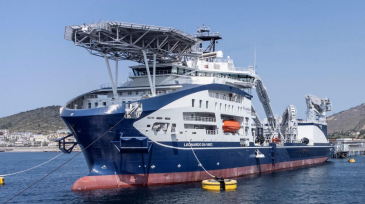Decarbonization
A DNV report on decarbonization says the Middle East and North Africa region is expected to become the world’s largest hydrogen exporter by 2060 while maintaining a dominant position in global oil and gas markets.
A final investment decision is also expected by the end of the year for the company’s first low-carbon data center project.
The North Sea Transition Authority has updated its UKCS Well Applications and Consents Guidance to include the process for applying for consent to drill carbon-storage wells.
-
With a successful pilot under its belt, Thailand's national oil company is planning a bigger production unit.
-
The company has added a new Southeast Asia carbon storage study to its growing library of carbon capture, use, and storage opportunities.
-
After becoming the first oil and gas major to source all its onshore grid electricity needs from nuclear and solar energy, ADNOC now focuses on decarbonizing production offshore.
-
The authors of this paper investigate the application of two seismic monitoring methods in monitoring carbon leaks: full waveform inversion and reverse-time migration.
-
This paper describes a method with multitiered analysis to leverage machine-learning techniques to process passive seismic monitoring data, pumping and injection pressure, and rate for fracture and fault analysis.
-
This paper presents a case study on injectivity tests to prove the concept of carbon capture, use, and sequestration capability, describing the design of surface and downhole testing systems, lessons learned, and recommendations.
-
Executives from BKV Corp. share why the mid-sized natural gas producer is diving headfirst into carbon sequestration projects and why you should too.
-
The contractor will be responsible for both pipeline and platform installation related to Petronas’ ambitious CCS project offshore Sarawak.
-
The project’s revised development plan now incorporates a carbon capture facility.
-
Thailand’s national petroleum exploration and production company plans to team with Japanese oil and gas company INPEX to study the feasibility of a carbon storage hub in the northern Gulf of Thailand.













